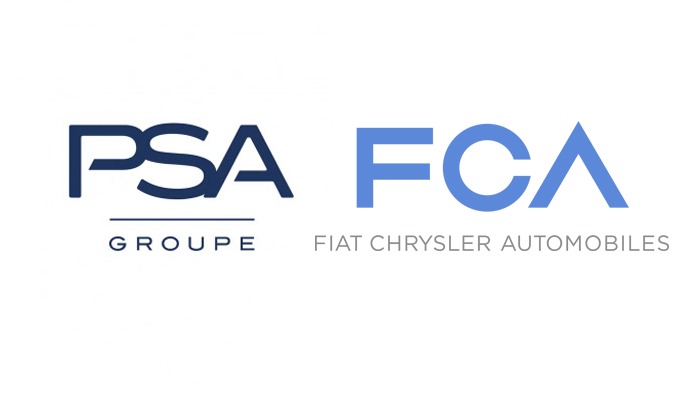What would a PSA-FCA merger mean for the German market?
05 December 2019

5 December 2019
Andreas GeilenbrÜgge, Head of Valuations and Insights at Schwacke, the German division of Autovista Group, considers the reasons behind the intention of PSA Group to merge with Fiat Chrysler Automobiles (FCA) so soon after the French carmaker acquired Opel/Vauxhall from General Motors. What are the consequences for the German market?
Above all, the planned merger between PSA and FCA would result in a strong range of brands. The number of passenger car and light-commercial vehicle brands to be found on German roads amounts to 15, of which 13 are still active – not including service, parts and logistics companies. Even VW Group is comparatively modest, with its nine brands. However, whether all the brands will survive or not depends on synergies.
The new silver medallist in passenger cars
The new PSA-FCA entity would be ranked second in Germany, with a market share of 13% based on current figures, slightly ahead of groups like Daimler, BMW and Renault-Nissan. This is an impressive performance, although VW Group remains ahead with a 37% share.
Within the A-Segment, however, the merged PSA-FCA group would today beat competition from Wolfsburg when counting all the Opel Adams, Karls and Fiat 500s, as well as the Citroen C1 and Peugeot 108, compared to the VW up!, Skoda Citigo and SEAT Mii. However we already know that not all models will be continued.
In terms of camper vans, which make it into new passenger-car registrations in Germany, the future Franco-Italian group would dominate the market with the Fiat Ducato and Citroen Jumper gaining a market share of more than 75%.
There are few other segments and models that sensibly complement each other though. The combined 50%+ share of tactical registrations (to the dealer, manufacturer and rental channels), which hurt residual values, will affect the performance of the combined PSA-FCA group in this regard.
Light-commercial vehicles – true greatness
There will also be a big impact on light commercial vehicles, which are profitable despite the huge discounts given to customers. The combination of Peugeot, Citroen, Opel, Fiat and Iveco would compete with VW and MAN for second place in Germany, overtaking Ford and leaving Renault-Nissan further behind.
By adding the Fiat Doblo to their portfolio, PSA would lead in the car-derived-van (CDV) segment, ahead of the VW Caddy, as well as in the heavy-van segment – ahead of the VW Crafter and Ford Transit. The Doblo has been carried over from the former cooperation between FCA and Opel and will inevitably be transformed into a version of PSA’s Berlingo/Partner family of CDVs, a fate that has already befallen the Opel Combo.
However, a combined PSA-FCA would lag behind the VW T6/Transporter and Mercedes-Benz Vito models in the medium-van segment, despite offering the Peugeot Expert, Citroen Jumpy, Opel Vivaro and Fiat Talento models. Furthermore, the Fiat Talento is a rebadged version of the Renault Trafic and so, should FCA merge with the Renault rival, it would inevitably be replaced with a version based on PSA’s medium van range.
Within Europe, PSA-FCA would be the uncontested LCV market leader but this would be achieved with a range of rebadged models, all of which will invariably not survive.
Trade and trends – network and strategy
Saving costs, in the interests of profitability, should be top of the agenda for PSA as it wrestles with its new size. The first synergies will surely benefit development, purchasing and production costs. They will only have an indirect impact in Germany of course but will materialise later in platform strategies and engine development – especially in parts standardisation and the electrification and elimination of models.
The expansion, through FCA, of PSA to Asia and America will be of limited interest to Germans but there will be a strong and immediate impact on the dealer and service networks of both companies, with inevitable streamlining of subsidiaries and franchised dealers.
Considering the costly experiences PSA has had with high-volume sales campaigns, the direct sales of Fiat models through consumer electronics shops and coffee-shop chains could soon come to an end.
Last but not least, the total number of approximately 60,000 rental vehicles is as much of a challenge for PSA-FCA as it is an instrument to influence the market. Rental companies are flexible in purchasing vehicles, even if the rental demand is not there, and so manufacturers can use the rental channel as a relief valve to manage stock levels. However, this also presents a challenge for residual values if market share is inflated and/or discounting is high.